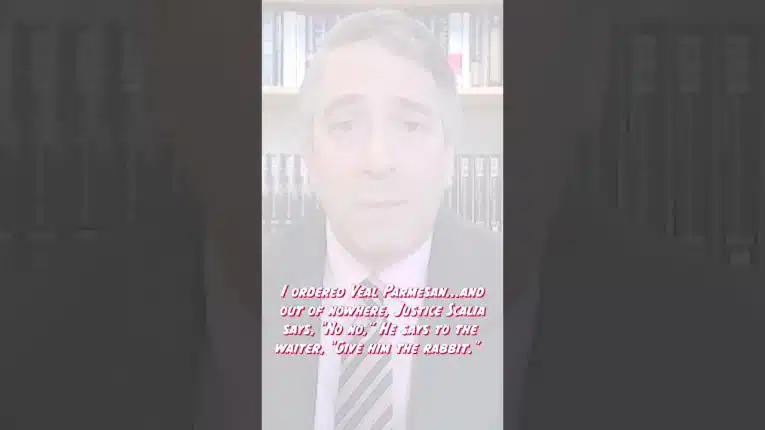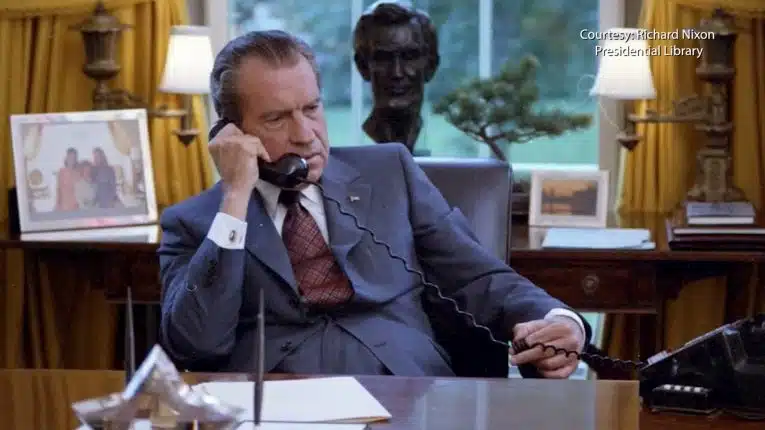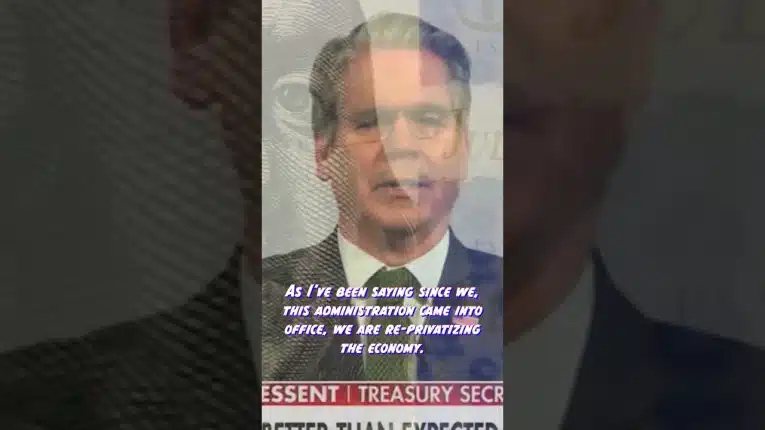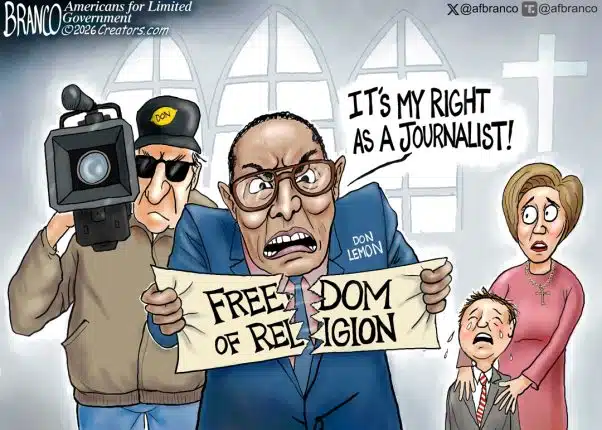Congress is no longer an effective check on the Executive Branch.
It is a radical assessment. Not one reached lightly, but it also happens to be true.
What else can one make of President Barack Obama’s most recent usurpation of Congress’ constitutional powers, arbitrarily changing federal law and granting millions of illegal immigrants amnesty, and then Congress after a brief fit voting overwhelmingly to grant him the funds to carry it out?
A presidential system, not a constitutional one
There is a reason why in our nation’s universities, where comparative politics is taught, the U.S. is described as a presidential system. Not a constitutional, federal republic of limited powers.
It is not simply because of century-old Ivory Tower bias in favor of Wilsonian progressivism, although that is easy enough to spot. No, it is because, as a practical, factual matter, the executive branch is by far the most important instrument of power in Washington, D.C. It is not co-equal in any sense of the word.
The Article I constitutional powers once granted to Congress to keep the president and his government in check — its institutional independence, if you will — have almost completed eroded away.
Over the course of a century, either through the usurpation of an ever-expanding scope of executive power, or being given away freely by a Congress disinterested in lawmaking and asserting its own prerogatives, power has unquestionably shifted to favor the executive. And over time, federal courts have stamped this uncanny progression with their own “constitutional” seal of approval, creating a system that now bears little resemblance to the government of limited, enumerated powers intended in 1787.
Generations of constitutional neglect
Don’t believe it? Well, read no further. Continue living in a fantasy world fit for children that teaches us that elections matter. That to make a law, it must first be passed by the House and Senate, and signed by the president. That all appropriations must originate in the House of Representatives. That Congress has the power to set our nation’s monetary policy. That only Congress can take the nation to war. That the president must faithfully execute the laws.
Continue with the tired selection of candidates, for Congress or particularly for president, who in the kaleidoscope of time will prove time and again just how powerless they really are in the face of the unbridled administrative state now established that would make Philip Dru blush.
There will be no amount of convincing, no body of evidence too conclusive, that will persuade you otherwise, that something is very wrong not only with the current state of affairs — but with this dangerous concentration of power in the executive branch brought on by generations of constitutional neglect.
Who created the administrative state?
For, properly understood, the problem is not simply that of a single, ambitious president, such as Barack Obama. Although his usurpations are many, they almost pale in comparison to the powers that have already been delegated to the faceless, unelected bureaucrats who make a career out of doing Congress’ job without much scrutiny. It is easy to identify a visible administration that issued an egregious regulation, but many Americans may not be aware that although a responsible president’s term ends, the rulemaking lives on.
In Washington, D.C., regulations are forever. And afterward, the bureaucrats continue their work, regardless of which party is in power.
Almost no administration in a century has been fully immune to this fundamental transformation — which began long before Obama made his infamous 2008 speech that merely acknowledged historically what has already occurred. So, we will leave it to readers and historians to chronicle precisely who is to blame and to what degree. On that count, the simplest answer is we are all to blame, for either blindly supporting it or tacitly accepting it — for facilitating it by doing nothing effective to stop it.
As Thomas Jefferson once noted, “Eternal vigilance is the price of liberty.” If we find ourselves in this predicament, with liberty so imperiled, clearly the failure lies with the body politic as a whole.
Still don’t believe it? I told you to stop reading. But, if you are curious enough still, and want to know more, you won’t have to look very far. I might recommend the works of Mark Levin, such as Ameritopia or The Liberty Amendments, or George Washington University professor Jonathan Turley, who make the case most effectively.
This piece shall leave you with a few recent examples beyond just Obama’s unconstitutional amnesty for 4.5 million illegal immigrants with U.S.-born children or even his postponing executing the employer mandate under the health care law that illustrates this pervasive and expanding executive and administrative state.
The EPA’s carbon endangerment finding
Massachusetts v. EPA was a case where Massachusetts sued the Bush Administration to regulate carbon dioxide, a biological gas necessary for the very existence of life, as a “harmful pollutant” under the terms of the Clean Air Act.
Despite the fact that the law was never designed to regulate CO2, and the agency itself argued against such an interpretation, the Supreme Court arbitrarily changed what the law meant, leading to the EPA’s 2009 carbon endangerment finding and subsequent rulemakings in the Obama Administration’s war on coal.
You see, winning elections is not enough. So complete has been the progressives’ victory in implementing the administrative state, that in drafting the Clean Air Act, Congress in its infinite wisdom created several causes of action for environmental groups and other aggrieved parties, like states, to sue the agency to force it to enforce the law the way they wanted beyond its original scope.
Similar causes of action are made available to every radical environmentalist in America to raise suits on a protracted basis against the government under the Endangered Species Act and the Clean Water Act. In the process, what is covered under those laws will continue to similarly expand.
Auto bailouts
In 2008, Congress took up legislation that would have bailed out then-troubled automakers GM and Chrysler with $14 billion of taxpayer-funded loans. The bill passed easily in the House, but, as it turned out, it ran into a brick wall in the Senate. It would fail to achieve cloture with 60 votes, going down in flames on Dec. 11, 2008, by a vote of 52 to 35.
To save the car companies, then-President George W. Bush opted to use $17 billion from the Troubled Asset Relief Program (TARP), which had been enacted to extend loans to financial institutions caught in the mortgage backed securities meltdown. There was nothing in the law that had allowed the bailout funds to be used for auto manufacturers.
Yet, on Dec. 19, 2008, more than six years ago, Bush announced: “Congress was unable to get a bill on my desk before adjourning for the year. This means the only way to avoid a collapse of the U.S. auto industry is for the executive branch to step in.”
The housing bubble and monetary policy
Don’t forget Government Sponsored Enterprises Fannie Mae and Freddie Mac — whose administrative control of housing finance helped cultivate the housing bubble that almost wrecked the global economy. These were governmental, regulatory policies, such as the companies’ so-called, escalating “affordable housing goals,” that were implementing laws passed by Congress.
There are also the Fed’s quantitative easing programs, which have expanded its balance sheet by more than $3.5 trillion since the financial crisis began. Because such policies are not subject to direct Congressional authorization, they clearly abrogate Congress’ constitutional power to coin money. Yet, the agency is merely enforcing a law passed by Congress.
No usurpations here. Congress just gave away the farm more than a century ago when it passed the Federal Reserve Act, or more recently when it passed the GSE Act of 1992.
‘Affirmatively furthering fair housing’
Last year, the Department of Housing and Urban Development (HUD) implemented “Affirmatively Furthering Fair Housing,” a rule that rewrites federal housing law to allow the department to redraw the zoning of every single neighborhood in the U.S. on the basis of race and income that accepts any portion of community development block grants.
In 2012, HUD dispersed about $3.8 billion of these grants to almost 1,200 municipalities.
Implicitly, at its core is the fundamentally racist concept that, barring a utopian, government-directed community integration on the basis of race and income, it will otherwise be impossible for supposed underserved populations to build their own communities based on shared values — a good education, safety, upward mobility, and community improvement.
Further, it tells anyone who has worked hard over succeeding generations to create such neighborhoods, or saved so they could move to one, that this desire and effort in itself was inherently racist and discriminatory — since it resulted in others being left behind. To redress this grievance, now HUD apparently wants to build high-density, local income housing in those communities, too.
But beyond even the intent of the regulation, here you have an agency that proposes to enforce federal law in a new and expanded way. See a pattern emerging?
Net neutrality
Just last week, the Federal Communications Commission’s (FCC) voted 3-2 in favor of new so-called “net neutrality” regulations.
The final rulemaking, the text of which has not been released yet, will include “reclassification of broadband Internet access as a telecommunications service under Title II of the Communications Act,” according to the agency’s press statement.
Under the 1996 Telecommunications Act, Internet service providers were exempted from being treated under Title II of the Communications Act of 1934 as common carriers. Instead, they were treated as exempt “information services” providers by the FCC in an initial 2002 determination.
That is, until the FCC just changed its mind, saying that, yes, they are common carriers under federal law. Yet another agency that just rewrites law at will. As Americans for Limited Government President Rick Manning noted, “Why even have a Congress?”
Power of the purse?
Last but not least, there is the federal budget itself.
During the most recent full-on government shutdown of 2013, most Americans do not know that over 86 percent of the then-$3.6 trillion budget kept on getting spent — without any vote of Congress.
For starters, some $2.5 trillion of federal outlays — more than 66 percent of all spending — is categorized as so-called “mandatory” spending. This is money that is automatically spent without any vote in Congress.
For that fiscal year, according to the Office of Management and Budget, this included Medicaid ($303.6 billion), the Refundable Premium Assistance Tax Credit ($32.2 billion), payments to reduce cost sharing in qualified health plans ($3.9 billion), Children’s Health Insurance ($9.9 billion), other health programs ($35.1 billion) Medicare ($523.8 billion), general retirement and disability ($6.9 billion), Federal employee retirement and disability ($140.7 billion), unemployment compensation ($56.2 billion), food and nutrition assistance ($98 billion), Supplemental Security Income ($53.1 billion), family and other support assistance ($25.1 billion), Earned Income Tax Credit ($55.6 billion), Child Tax Credit ($25.1 billion), payments to states for foster care/adoption assistance ($6.9 billion), housing assistance and other ($7.3 billion), Social Security ($860.3 billion), veterans benefits and services ($85.8 billion), and gross interest owed on the debt ($417.9 billion).
The reason these items on the budget are automatically spent is because they are done on the basis of who qualifies under the law, not on how much Congress appropriates for the programs.
In addition, Forbes.com’s Paul Roderick Gregory found that of the $620 billion non-defense “discretionary” spending, “at a minimum, $150 billion will be spent on essential services from agencies like Homeland Security, National Nuclear Security, Veterans Affairs, Social Security Administration, and others.” Defense spending will continue almost in full.
Therefore, out of the $3.627 trillion budget, even with the government supposedly “shut down,” $3.15 trillion will still be spent — some 86.4 percent of the budget. Even when the government is supposedly “shut down,” when Congress has not voted to appropriate any money — excepting defense and law enforcement Congress did vote to pay for during the shutdown — they continue working and getting paid. Simply remarkable.
Meaning, Congress could adjourn for good, and the administrative state would continue right on functioning much as it has, which brings us to the moral of the story.
Does Congress still matter?
For those shocked by Congress’ surrender on executive amnesty, this is just one more step down its long path to irrelevance.
The constitutional separation of powers has been shattered.
And what to do about it may be the most urgent task before the American people in order to reclaim true representation. If not, the continued usurpation of powers originally delegated to the legislative branch appears to be all but inevitable.
We can either ignore it, or we can confront it.
Robert Romano is the senior editor of Americans for Limited Government.







